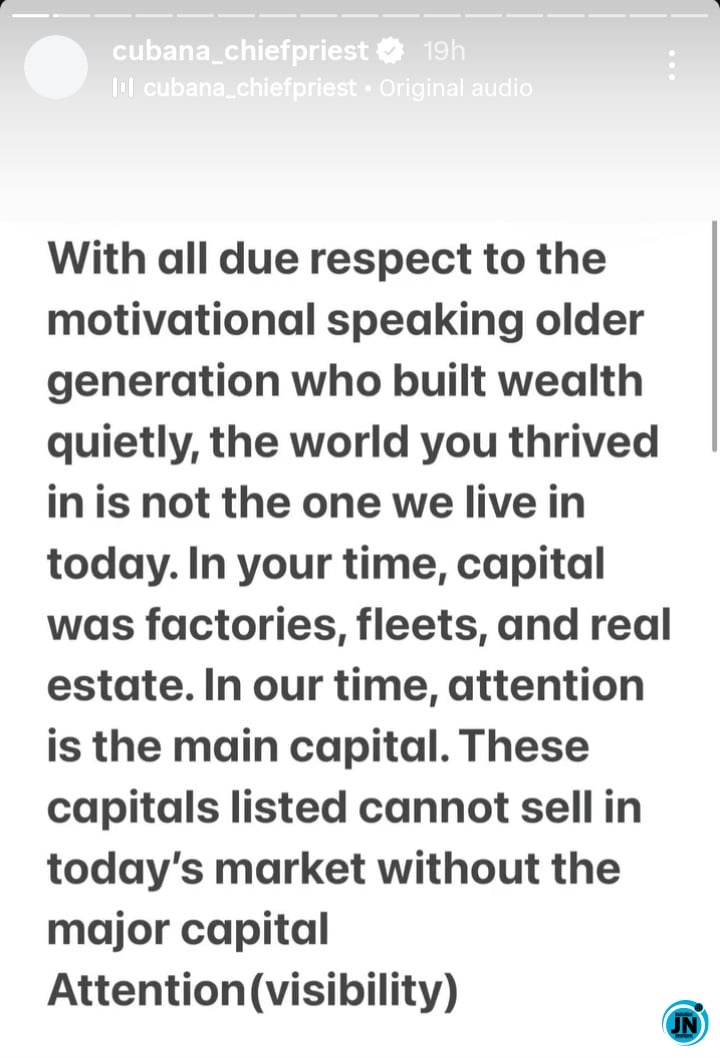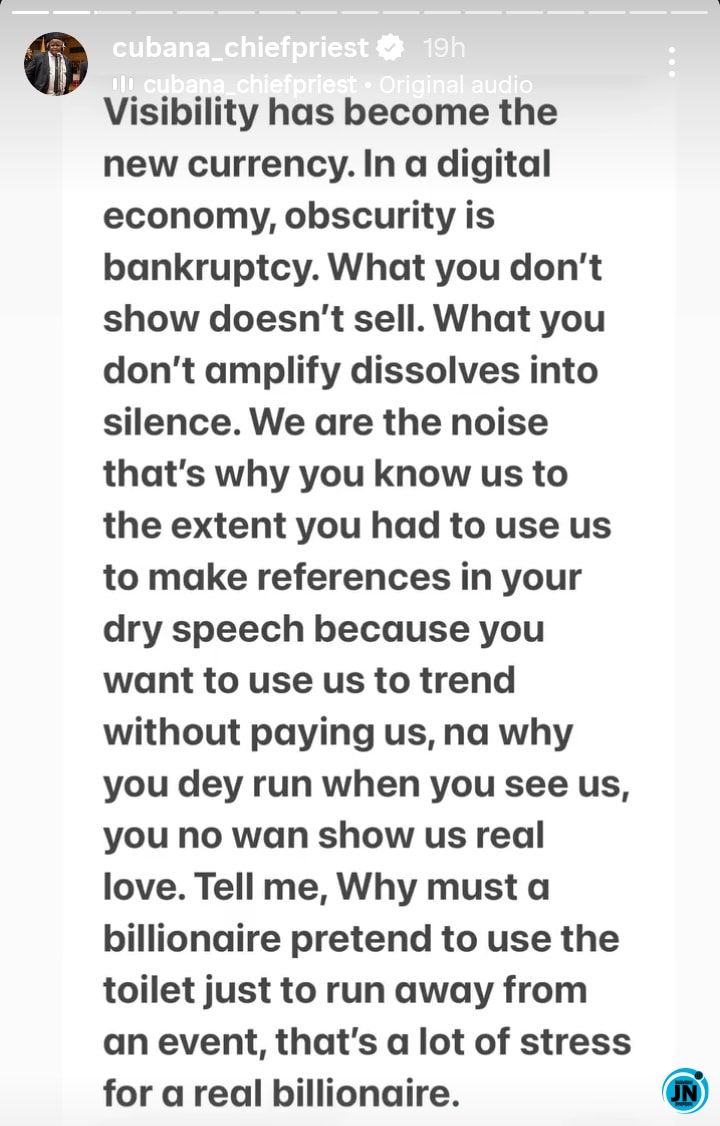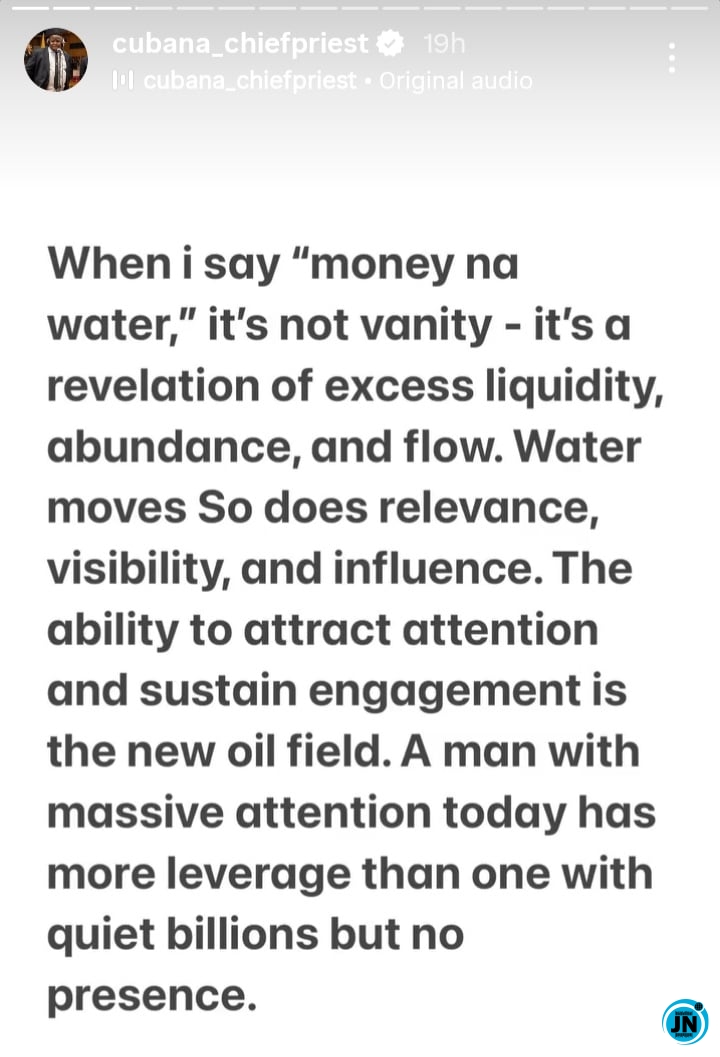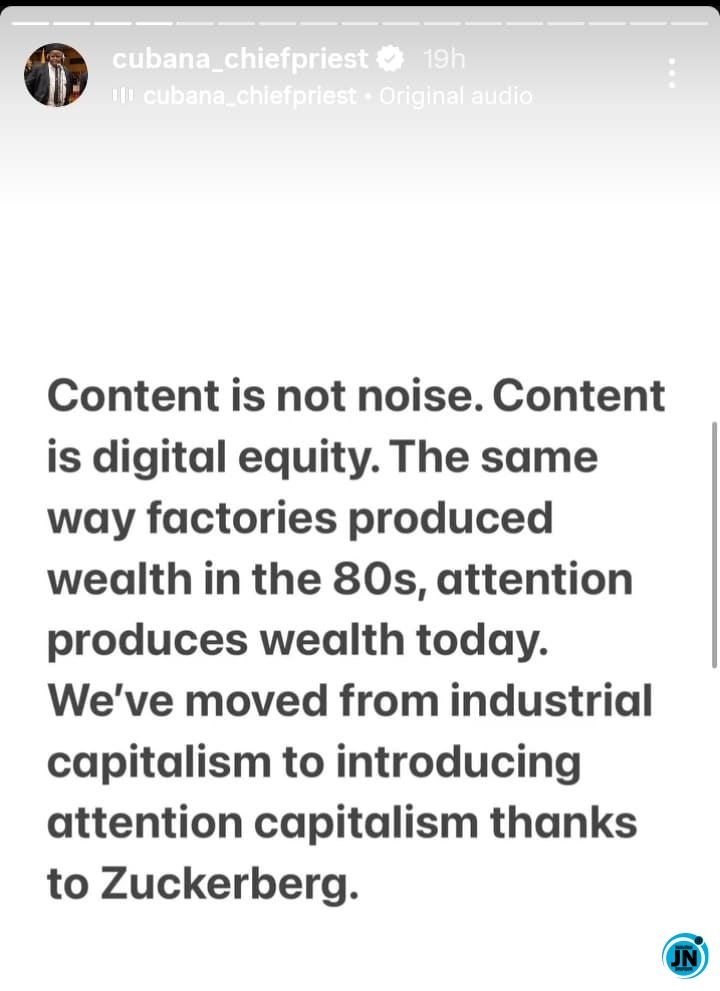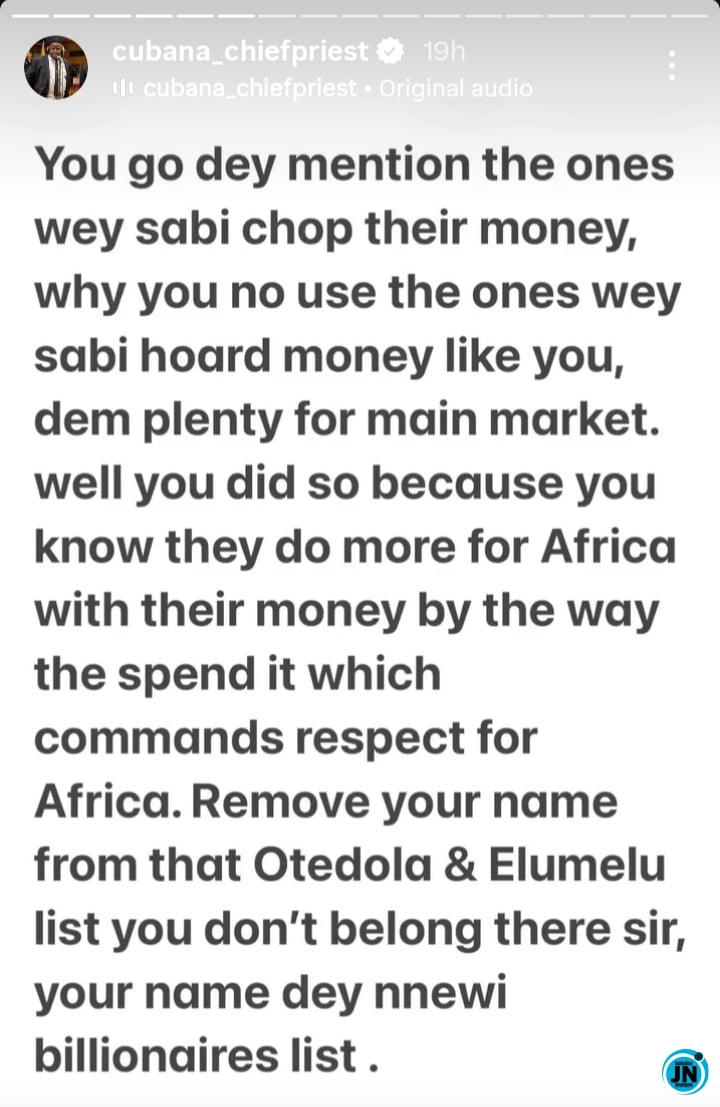Celebrity nightlife promoter and entrepreneur Cubana Chief Priest has sparked widespread discussion online after responding to billionaire Cosmas Maduka, Chairman of Coscharis Group, following the latter’s public criticism of the phrase “Money na water,” which has become synonymous with Chief Priest’s brand and influence in the nightlife and entertainment industry.
In a detailed and lengthy Instagram post, Chief Priest offered a compelling perspective on generational differences in wealth creation, arguing that while older entrepreneurs like Maduka built their fortunes through factories, fleets, and real estate, today’s generation of business leaders thrives on attention, visibility, and influence, which he described as the “new currency” in a digital-driven economy.
[figure id="attachment_1217433" aria-describedby="caption-attachment-1217433" style="width: 495px" class="wp-caption aligncenter">
Chief Priest emphasized that in the digital age, what is not visible or amplified often fails to generate relevance or wealth. He highlighted that attention now drives influence, market power, and economic opportunities in ways that traditional industrial assets once did, making content creation and digital presence a form of modern equity comparable to factories in the 1980s.
Content as digital equity
In his response to Maduka’s comments about avoiding events where money is thrown around, Chief Priest did not hold back, questioning why a billionaire would feel compelled to avoid being part of such events. He wrote: “You used us to trend without paying us. Why must a billionaire pretend to use the toilet just to run away from an event?” This was part of a broader message asserting that today’s cultural and economic influence comes from visibility and engagement rather than solely from traditional wealth accumulation.
He further distinguished between his philosophy and that of the older generation, stating that his phrase “Money na water” is not a vanity statement, but rather a “prophecy of abundance and flow,” capturing the essence of modern liquidity, opportunity, and relevance in society. He teased that his new anthem aligned with this philosophy would drop soon, promising to extend the idea of wealth and influence beyond mere monetary value.
Chief Priest addresses critics and highlights mentors
Chief Priest also took aim at Maduka for publicly mentioning certain African billionaires like Tony Elumelu and Femi Otedola as examples of wealth usage, suggesting that Maduka did not align with the same values. He praised Elumelu and Otedola for using their resources to uplift Africa and give visibility to local entrepreneurs, contrasting this with those who hoard wealth quietly. Chief Priest urged that the focus should be on how wealth is deployed to create impact, stating that his generation builds platforms for projection while older generations built fences to protect wealth.
He elaborated: “Visibility has become the new currency. In a digital economy, obscurity is bankruptcy. What you don’t show doesn’t sell. What you don’t amplify dissolves into silence. We are the noise that’s why you know us to the extent you had to use us to make references in your dry speech because you want to use us to trend without paying us, na why you dey run when you see us, you no wan show us real love. Tell me, Why musta billionaire pretend to use the toilet just to run away from an event, that’s a lot of stress for a real billionaire.”
He stressed the philosophy behind “Money na water,” explaining that the phrase represents abundance, liquidity, and the movement of influence in modern society. “Water moves. So does relevance, visibility, and influence. The ability to attract attention and sustain engagement is the new oil field. A man with massive attention today has more leverage than one with quiet billions but no presence,” he added. Chief Priest positioned content as a modern form of digital equity, akin to the industrial capital that produced wealth in prior decades, signaling a shift from industrial capitalism to what he termed “attention capitalism,” crediting platforms like Facebook for pioneering this transformation.
Chief Priest also clarified that his criticisms were not personal attacks but part of his vision for redefining success, influence, and wealth in Africa’s evolving social and digital landscape. He reiterated that the phrase “Money na water” is a declaration of prosperity, abundance, and the flow of resources, and remains central to his brand identity and upcoming music projects. He encouraged his followers to embrace visibility, engagement, and active participation in creating value in the modern economy.
He concluded with a message reinforcing his upcoming music release: “Money na water is a prophecy that connotes wealth overload. This is my story. Perhaps some may choose to go with ‘lack na water,’ but over here… MONEYS NA WATER? Na my business be this, Na My Lamba make nobody try spoil am as e dey go, wetin from here enter Venezuelas the peace anthem will drop this Friday midnight.”
Check out post below …
